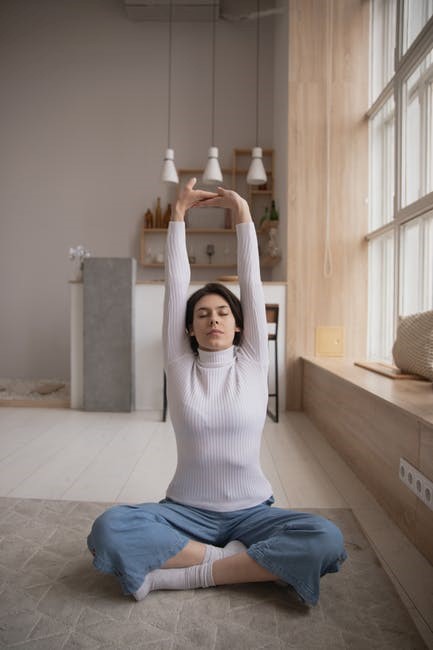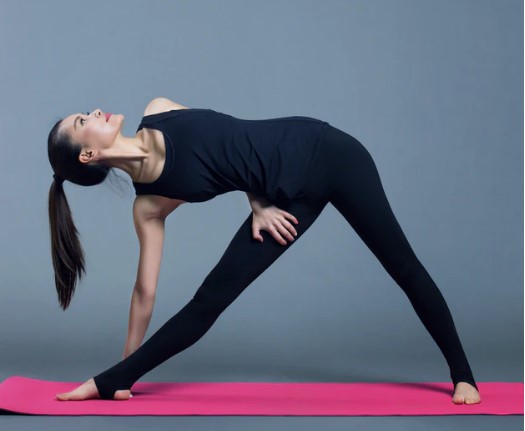Expert physical therapists recommend that you should stretch regularly, ideally on a daily basis.
Stretching keeps your muscles strong and flexible with a full range of motion. This shouldn’t be all that difficult to accomplish, as we can all attest that stretching feels really good.
Whether it is a series of dynamic stretches before your workout to warm you up or a few static stretches post workout to cool you down, stretching leaves you feeling energized and rejuvenated.
Let’s not forget about the refreshing quick stretches at your desk or when you step out of bed after a restful night.
So, why does stretching feel so good? This article will discuss some reasons why stretching feels good as well as the benefits of stretching.
Table of Contents
Reasons why stretching feels good
The following are some explanations as to why stretching fees good.
- It promotes optimal blood and oxygen circulation in the body
Stretching lengthens your muscles, which improves blood flow through the veins. Optimal blood circulation is paramount for providing essential nutrients, oxygen, and glucose to your cells and tissues. This also ensures that your cells are producing adequate energy. As a result, a simple stretch leaves you feeling energized.
- It alleviates muscle tightness
Muscle tightness can cause you to feel lethargic and tired. Tightness can be the result of poor body posture, stress, inactivity, or excess activity. Stretching loosens the tight muscles and joints and alleviates muscle cramping or soreness.
- It produces endorphins in the body
Stretching, like any other exercise, floods your body with endorphins which elevate your mood. Endorphins have an analgesic and relaxing effect on the body, which cancels out the effects of cortisol on the body, including stress, anxiety, mild body aches, and tiredness.
Stretching coupled with a deep breathing promotes instant stress-relief and feelings of happiness. This explains why an involuntary yawn accompanied by a long stretch feels so good.
- It activates the parasympathetic nervous system
The parasympathetic nervous system stimulates rest and digestion. It facilitates body functions such as salivation, sexual arousal, urination, digestion, and defecation, among others. It also slows heart rate and blood pressure. Therefore, the parasympathetic nervous system not only enables you to relax and calm down, but it also promotes good gut health.
- It lowers blood pressure
Aside from promoting blood circulation, stretching also lowers blood pressure. Low blood pressure that is within a healthy range promotes a sense of calmness and well-being. On the other hand, high blood pressure can cause headaches, body weakness, fatigue, difficulty breathing, poor vision, and confusion, among other unpleasant symptoms.
A particular study done on pregnant women concluded that stretching reduces systolic and diastolic blood pressure during the second trimester.
Benefits of Stretching

Here are some benefits of stretching.
- Prevents injuries during your workout
Stretching is especially important as part of your warm-up, to prevent injuries and enhance performance. Throughout the day, when not engaged, your muscles shorten and tighten.
Before starting exercise, particularly strenuous workouts, it is important that you take some time to stretch. Otherwise, suddenly exerting on tight muscles can cause serious injuries.
Furthermore, warmed-up muscles promote optimal performance in every exercise. Ensure to adequately stretch the main muscle groups that you will be working out.
- Boosts post-workout recovery
Studies show that adequately stretching post-workout significantly reduces muscular soreness. Stretching lengthens muscles that may have contracted during your workout. It also promotes blood and oxygen circulation to the muscles, facilitating oxidation of the lactic acid that causes soreness (this is usually referred to as “delayed onset muscle soreness” or DOMS).
- Promotes flexibility
Stretching improves the range of motion of the muscles themselves and also of the joints and tendons. This means that you will be able to move freely. It trains the nervous system to withstand greater muscular tension without triggering pain receptors.
Although passive and dynamic stretching can significantly improve your flexibility, one study shows that proprioceptive neuromuscular facilitation (PNF) is more effective. This involves lengthening your muscles, and then contracting them from the lengthened position.

- Promotes good posture
Poor posture results from extreme shortening of muscles and muscle imbalance. Proper stretching keeps all the muscle groups in alignment with each other for improved posture. It also lengthens the muscles for an upright posture.
- Prevents and alleviates back pain
Modern lifestyle is characterized by spending long hours seated either at a desk, on a sofa, or in a car. This causes the spinal muscles to tighten and contract, causing back pain. Stretching your back muscles regularly helps to lengthen your spine and maintain good posture even when seated. This helps relieve pain or prevent back pain.
- Promotes mental health
Stretching relieves stress, promotes optimal circulation of blood and oxygen to the brain, and also gives you a break from any anxiety-causing trail of thoughts. Stretching causes you to bring your awareness to your body. This gives you a break from rapid thoughts and also has a meditative effect on the mind.
- Promotes a good night sleep
Some of the aforementioned benefits of stretching, such as improved blood circulation, stress relief, calming down the nervous system, and easing mild-body aches help you to have a restful night. Plus, stretching is not an intense exercise and is ideal as an exercise routine to help calm your nervous system just before you go to bed.
Conclusion
Stretching generates a sense of relief, ease, and well-being. It enhances various body functions, improves your postures, promotes flexibility, boosts mental health, and enhances post-workout recovery.
Although it sometimes happens involuntarily, it is important to deliberately incorporate stretching into your day-to-day life for enhanced benefit. If you work out often, make sure to do stretching as part of your warm up or cool down.
In fact, you might want to allocate a separate day for stretching-intensive workouts, such as yoga and pilates, to assist your body in recovery. Alternatively, do a few stretches first thing when you wake up, or take a few minutes away from your desk to stretch.







